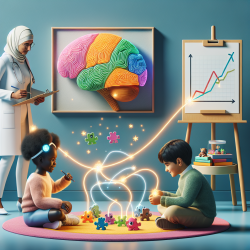In the ever-evolving field of psychiatric nursing education, the need for innovative teaching methods is paramount. A recent study titled Descriptive Analysis of Student Diagnostic and Documentation Skill Development in a Low Fidelity Simulation in Psychiatric Nurse Practitioner Education sheds light on the effectiveness of low-fidelity simulations in improving essential skills among psychiatric nurse practitioner students.
The Role of Low-Fidelity Simulations
Low-fidelity simulations offer a cost-effective and adaptable alternative to high-fidelity simulations. They provide students with realistic scenarios that allow them to practice and refine their diagnostic and documentation skills without the need for expensive equipment or extensive resources. This approach is particularly beneficial in psychiatric nurse practitioner programs where clinical placements can be limited.
Key Findings from the Study
- Skill Improvement: The study revealed significant improvements in students' description, detail, completeness, and professionalism over the course of a semester. These enhancements were particularly notable in areas such as detail and completeness.
- Increased Confidence: Students reported higher levels of confidence in their ability to assess, diagnose, and document patient interactions. This boost in confidence is crucial as it prepares them for real-world clinical settings.
- Utility of Simulations: Participants found the simulations valuable for relating patient symptoms to diagnostic criteria and improving their charting skills.
Implementing Low-Fidelity Simulations
Nursing educators looking to integrate low-fidelity simulations into their curricula can take several steps:
- Create Realistic Scenarios: Develop scenarios that reflect common psychiatric conditions and challenges faced by practitioners.
- Focus on Feedback: Provide detailed feedback to students on their performance to facilitate continuous improvement.
- Encourage Repetition: Allow students to repeat simulations until they achieve mastery, reinforcing learning through practice.
The Path Forward
The findings from this study underscore the potential of low-fidelity simulations as a valuable tool in psychiatric nurse practitioner education. By fostering skill development and confidence, these simulations prepare students for successful careers in mental health care. As educators continue to explore innovative teaching methods, further research into simulation-based learning will be essential to optimize educational outcomes.
To read the original research paper, please follow this link: Descriptive Analysis of Student Diagnostic and Documentation Skill Development in a Low Fidelity Simulation in Psychiatric Nurse Practitioner Education.










